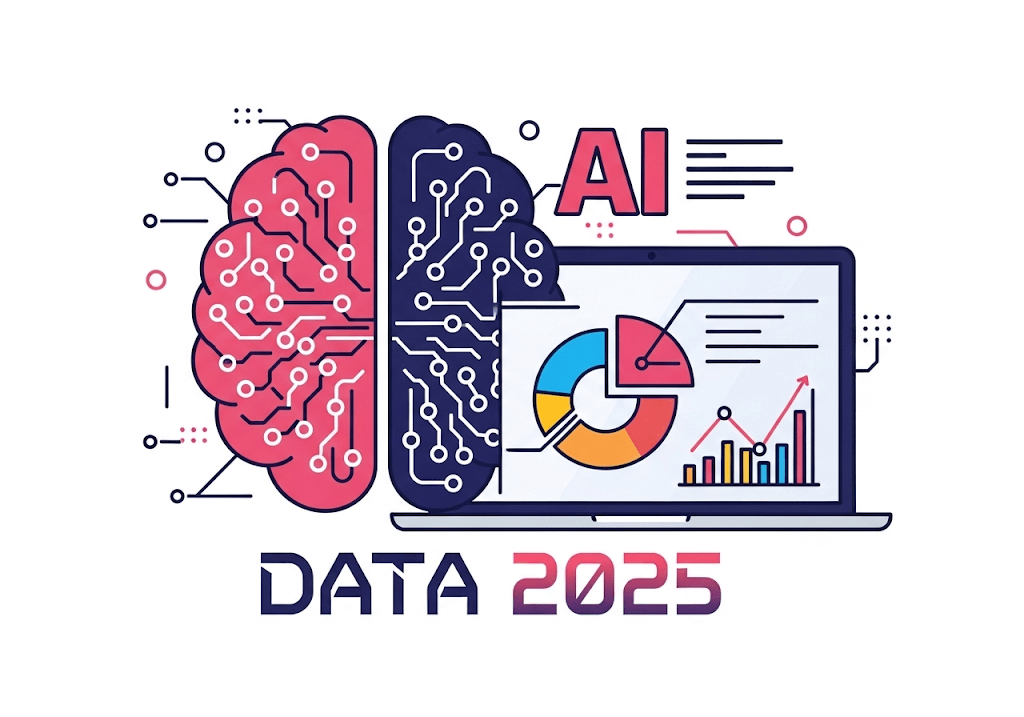Introduction
As we move deeper into the digital age, data science continues to evolve at an astonishing pace. From AI-powered analytics to ethical algorithms, 2025 is shaping up to be a landmark year. Whether you're an aspiring data scientist or a business leader looking to harness data, understanding the trends, skills, and opportunities in this field is more important than ever.
1. The Evolution of Data Science
Data science has shifted from simple analytics to predictive modeling, real-time insights, and autonomous systems. In 2025, expect:
-
AI integration in almost every data project
-
Increased focus on real-time and edge data processing
-
Tighter regulation on data ethics and governance
2. Hottest Trends to Watch
Here are the most exciting trends reshaping data science in 2025:
-
Generative AI in Analytics: Tools like ChatGPT and Gemini are being used to generate data visualizations, summaries, and code.
-
AutoML & No-Code Platforms: Democratizing data science for non-programmers.
-
Real-Time Data Streaming: Powered by tools like Apache Kafka and Flink.
-
Data Mesh Architecture: Decentralized, domain-focused data ownership.
-
AI Governance & Ethics: Transparent and fair use of AI models is now business-critical.
3. Must-Have Skills for 2025
To stay competitive, data scientists need a blend of technical and soft skills:
-
Python & R programming
-
Machine learning frameworks (TensorFlow, PyTorch, Scikit-learn)
-
Data engineering (SQL, Spark, Airflow)
-
Data visualization (Tableau, Power BI, Plotly)
-
Cloud platforms (AWS, GCP, Azure)
-
Communication & storytelling with data
-
Ethical data practices
4. Career Opportunities Are Growing
The demand for skilled data professionals is soaring. Roles to watch include:
| Role | Median Salary (2025 Est.) |
|---|
| Data Scientist | $130,000+ |
| Machine Learning Engineer | $150,000+ |
| Data Engineer | $120,000+ |
| AI Researcher | $160,000+ |
| Business Intelligence Analyst | $100,000+ |
Companies across industries—finance, healthcare, retail, and tech—are actively hiring.
5. Real-World Applications
Data science is transforming every sector:
-
Healthcare: Predictive diagnostics, personalized treatment
-
Retail: Customer behavior modeling, inventory optimization
-
Finance: Fraud detection, risk modeling
-
Education: Adaptive learning platforms
-
Environment: Climate modeling, conservation analytics
6. How to Get Started
If you're new to data science, here’s your roadmap:
-
Learn Python or R
-
Master data analysis & visualization
-
Explore machine learning basics
-
Build portfolio projects on GitHub
-
Contribute to open-source datasets or competitions (Kaggle)
Conclusion
2025 is a defining year for data science. As data continues to shape industries and innovation, now is the perfect time to invest in the skills, tools, and knowledge that will drive your future. Whether you're building a career or leading a data-driven business, staying ahead of the curve in this field is not just beneficial—it’s essential.



 Data Science 2025, Data Science Trends, Future of Data Science, Data Science Skills, Data Science Career Paths, Machine Learning, Artificial Intelligence, Data Analytics, Python for Data Science, AI Ethics, Data Engineering, AutoML, No-Code Data Tools, Real-Time Data Processing, Cloud Data Platforms (AWS, Azure, GCP), Data Visualization Tools, Data Scientist Salary, Data Science Jobs, Learn Data Science, Data Science Applications
Data Science 2025, Data Science Trends, Future of Data Science, Data Science Skills, Data Science Career Paths, Machine Learning, Artificial Intelligence, Data Analytics, Python for Data Science, AI Ethics, Data Engineering, AutoML, No-Code Data Tools, Real-Time Data Processing, Cloud Data Platforms (AWS, Azure, GCP), Data Visualization Tools, Data Scientist Salary, Data Science Jobs, Learn Data Science, Data Science Applications
 0 comment
0 comment
 17 Jun, 2025
17 Jun, 2025

Stephen Thompson
0 comment